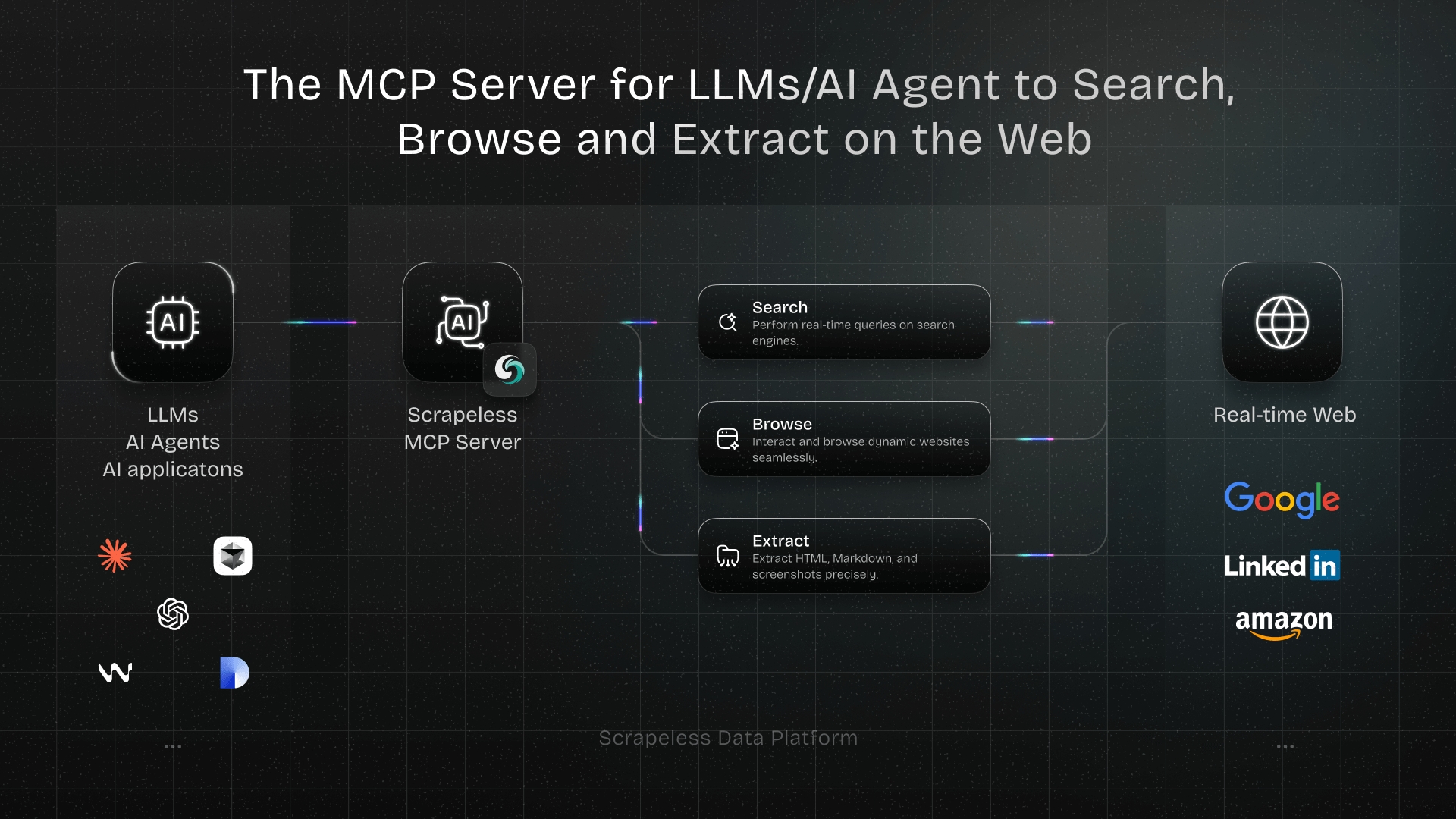How To Generate Random IPs for Web Scraping
Expert Network Defense Engineer
Introduction
Generating random IPs is essential for web scraping. Without IP rotation, your requests risk being blocked. This guide explores 10 practical methods to generate random IPs in Python. For an easier and more reliable approach, consider using Scrapeless, which automates IP rotation.
1. Using a Static List of IPs
Conclusion: A predefined list allows simple random selection.
Steps:
- Create a list of IPs (
ips = ["192.168.1.1", "192.168.1.2"]). - Use
random.choice()for selection.
python
import random
ips = ["192.168.1.1", "192.168.1.2", "192.168.1.3"]
random_ip = random.choice(ips)
print(random_ip)Application: Small scraping tasks with a controlled set of IPs.
2. Using Random IP Generation
Conclusion: Generate IPs programmatically for higher variability.
Steps:
python
import random
def random_ip():
return ".".join(str(random.randint(1, 254)) for _ in range(4))
print(random_ip())Application: For testing or temporary scraping tasks where IP reputation is not critical.
3. Rotating Free Public Proxies
Conclusion: Free proxies provide immediate random IPs.
Steps:
- Fetch a proxy list from public sources.
- Randomly select a proxy for requests.
python
import requests, random
proxies = ["http://111.111.111.111:8080", "http://222.222.222.222:8080"]
proxy = random.choice(proxies)
response = requests.get("https://example.com", proxies={"http": proxy, "https": proxy})Application: Small-scale scraping with low budget.
4. Using Proxy Rotation Services
Conclusion: Paid providers deliver reliable random IPs.
Steps:
- Sign up for services like Luminati, ScraperAPI, or Scrapeless.
- Use their endpoints with your API key.
python
import requests
api_url = "https://proxyprovider.com?api_key=YOUR_KEY&url=https://example.com"
response = requests.get(api_url)
print(response.text)Application: Large-scale web scraping without manual IP management.
5. Generating Random IPs with Tor
Conclusion: Tor provides anonymous random IPs.
Steps:
- Install Tor and
stemlibrary. - Connect via SOCKS proxy (
127.0.0.1:9050).
python
proxies = {"http": "socks5h://127.0.0.1:9050", "https": "socks5h://127.0.0.1:9050"}
response = requests.get("https://example.com", proxies=proxies)Application: Anonymous scraping and bypassing regional restrictions.
6. Random IPs in Selenium
Conclusion: Selenium supports rotating IPs via browser proxy.
Steps:
python
from selenium import webdriver
from selenium.webdriver.chrome.options import Options
import random
ips = ["111.111.111.111:8080", "222.222.222.222:8080"]
chrome_options = Options()
chrome_options.add_argument(f'--proxy-server={random.choice(ips)}')
driver = webdriver.Chrome(options=chrome_options)
driver.get("https://example.com")Application: Automation tasks with multiple browser sessions.
7. Async IP Rotation with HTTPX
Conclusion: Async requests support high concurrency with random IPs.
python
import httpx, asyncio, random
ips = ["111.111.111.111:8080", "222.222.222.222:8080"]
async def fetch(url):
proxy = random.choice(ips)
async with httpx.AsyncClient(proxies={"http": proxy, "https": proxy}) as client:
r = await client.get(url)
print(r.status_code)
asyncio.run(fetch("https://example.com"))Application: High-speed web scraping.
8. Rotating IPs in Scrapy
Conclusion: Scrapy middleware can automatically assign random IPs.
Steps:
- Enable
HttpProxyMiddleware. - Define a list of proxies in
settings.py.
python
DOWNLOADER_MIDDLEWARES = {'scrapy.downloadermiddlewares.httpproxy.HttpProxyMiddleware': 1}
PROXY_LIST = ['http://111.111.111.111:8080', 'http://222.222.222.222:8080']Application: Large spider projects needing many random IPs.
9. Using Scrapeless for IP Management
Conclusion: Scrapeless automates random IP assignment for all requests.
Benefits:
- Eliminates manual IP management
- Handles concurrency efficiently
- Reduces block risks
Application: Suitable for professional scraping with minimal setup.
10. Dynamic IPs with Environment Variables
Conclusion: Environment variables allow configurable random IPs.
python
import os, random
from dotenv import load_dotenv
load_dotenv()
ips = os.getenv("IPS").split(",")
random_ip = random.choice(ips)
print(random_ip)Application: Flexible pipeline setup for various scraping tasks.
Comparison Summary
| Method | Ease of Use | Cost | Scalability | Best Use Case |
|---|---|---|---|---|
| Static List | Easy | Free | Low | Small tasks |
| Random Generation | Easy | Free | Medium | Testing |
| Free Proxies | Easy | Free | Medium | Low-budget scraping |
| Paid Providers | Easy | Paid | High | Large projects |
| Tor | Medium | Free | Low | Anonymous scraping |
| Selenium | Medium | Free/Paid | Medium | Browser automation |
| HTTPX Async | Medium | Free | High | High concurrency |
| Scrapy | Medium | Free | High | Spider projects |
| Scrapeless | Very Easy | Paid | High | Professional scraping |
| Env Variables | Medium | Free | Medium | Configurable pipelines |
Key Takeaways
- Random IPs reduce blocking and improve scraping reliability.
- Python supports multiple approaches, from manual to automated.
- Scrapeless provides an easy, reliable, and scalable solution.
FAQ
Q1: Why generate random IPs?
To prevent blocks and ensure consistent scraping performance.
Q2: Can I use free IP lists?
Yes, but stability is limited. Paid solutions are recommended for large projects.
Q3: Does Scrapeless require coding?
Minimal coding is needed; it integrates with Python scripts seamlessly.
Q4: Can I rotate IPs in Selenium?
Yes, assign a random proxy in browser options.
Q5: How often should IPs rotate?
Depends on request volume and target site restrictions.
Recommended Solution
For a hassle-free experience, try Scrapeless to automatically generate and rotate random IPs.
References
At Scrapeless, we only access publicly available data while strictly complying with applicable laws, regulations, and website privacy policies. The content in this blog is for demonstration purposes only and does not involve any illegal or infringing activities. We make no guarantees and disclaim all liability for the use of information from this blog or third-party links. Before engaging in any scraping activities, consult your legal advisor and review the target website's terms of service or obtain the necessary permissions.



